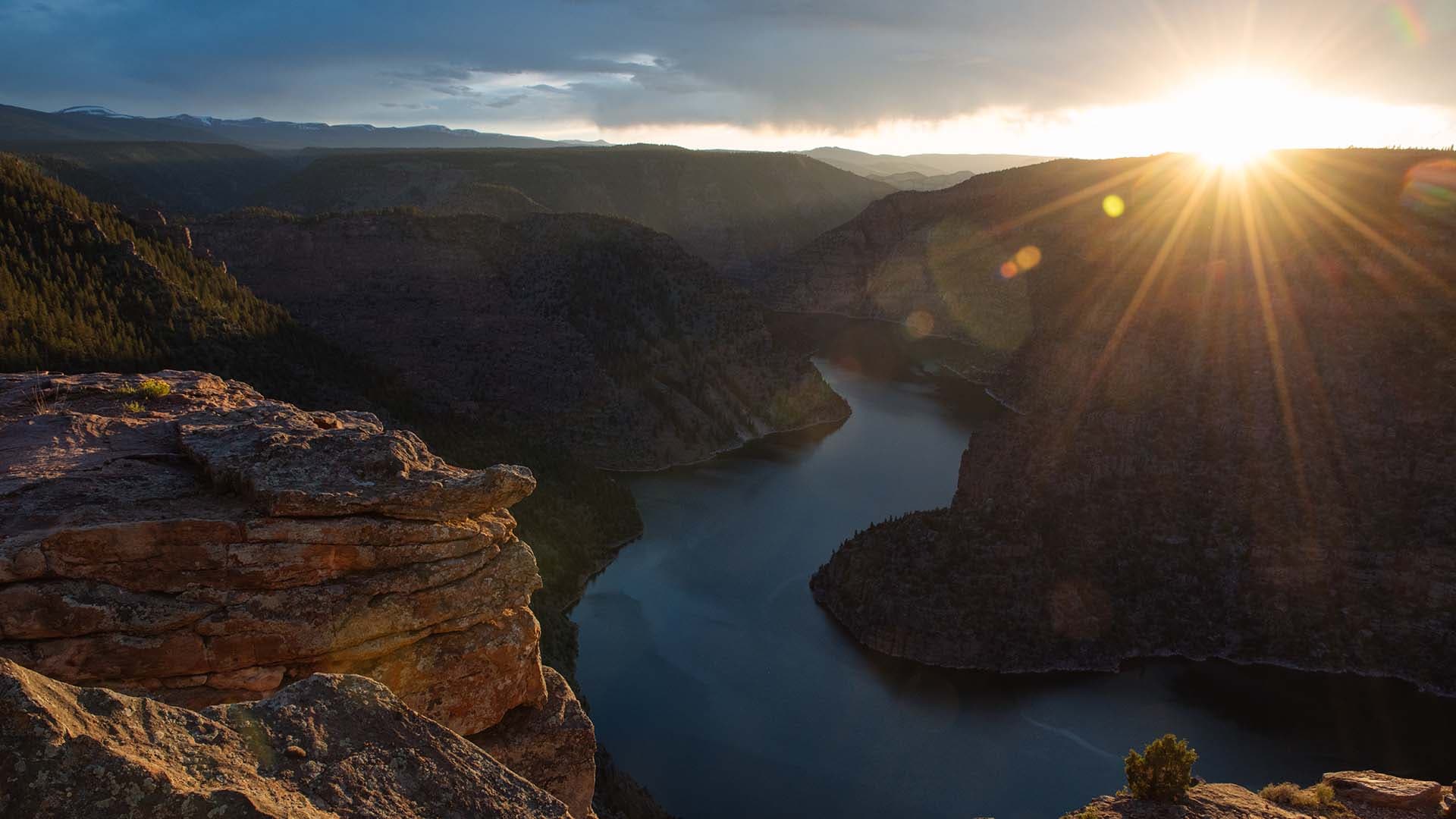Road Trip to Wyoming’s Flaming Gorge

Story and photos by Nick Cote
Nick is a freelance travel writer based in Colorado. See more of his work on his website.
Geological wonders offer clues to Wyoming’s distant past.
I grew up in Wyoming, so I’ve always had a passing familiarity with the state’s geological past. Once the bottom of a prehistoric ocean, the state is fertile ground for fossil hunters and rock collectors.
As a kid, I treasured finds of what could be a fossil or, at the very least, a cool rock. In 1994, the state even declared an official dinosaur: triceratops. Geological and paleontological wonders in my backyard brought favourite movies like “Jurassic Park” and “The Land Before Time” closer to home. My interest in geology didn’t progress into a career, but I still have a small collection of rocks I’ve found during my travels (collected legally, of course—check with local land management before removing anything and always leave archaeological sites untouched). I’d been to Flaming Gorge a handful of times over the past few years but on a recent trip I decided to take my time exploring the rock formations and learning about the unique geology of the area.
Flaming Gorge stretches from the small towns of Green River and Rock Springs in southern Wyoming down into northern Utah. The 146-km-long reservoir and national recreation area feel like a greatest-hits album of western landscapes. From towering sandstone pinnacles in the desert to pine forests at the foothills of the Uinta Mountains, the Flaming Gorge-Green River Basin Scenic Byway goes through several ecosystems. Outlaws of the Old West, most infamously Butch Cassidy and the Sundance Kid, sought hideouts among the cliffs and twisting tributaries. But it doesn’t take a geologist (or a bank robber) to appreciate what a little bit of water can do over 3 billion years. A day or two and a tank of gas should do the trick for most people.
I began the drive on the east side of the gorge, heading south from Rock Springs. The geological history is slow to reveal itself at first, as the road skirts over rolling hills on the sagebrush-covered plateau above the Green River, the primary architect of the gorge. Before long, signs pop up noting this is where giant marine reptiles swam and that it’s the home of fossilized squid.
The byway turns to the north again at the Red Canyon Overlook, just over the Utah border. As I arrived at the rocky outcrop, perched 518 metres above the water, a layer of thunderclouds hung over the horizon, obscuring the sun. I waited for the sun to set as I tried to read the canyon walls and identify the different types of stone, putting the information gleaned from the signs along the highway to use.
Just before the sun dipped below the horizon, the clouds split and light poured into the gorge, cutting through the haze and bouncing off the canyon walls. Millions of years of erosion were illuminated at once in the red sandstone walls. I may not be a modern-day Indiana Jones, but I knew enough to spot a piece of obsidian on the ground next to me. I ran my fingers along the sharp edges as I slipped it into my pocket, thinking about how as a kid I would have wondered if it were an arrowhead or some other kind of valuable. For now, it rides on my dashboard, serving as a reminder of that sunset, joining a small stash of other rocks collected from past adventures.
Driving Through America the Beautiful
A trip from Denver to Montana shows off the vast and varied scenery in the U.S.
Summer Road Trip on the Snowy Range Scenic Byway
The route through the Medicine Bow Mountains features fly-fishing, camping and more.
Learning to Love Wyoming’s Interstate 80
If you’re willing to stop and take some time, you’ll find gems along this infamous highway.




